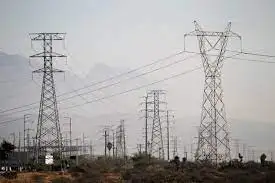Florida customers question their high rates
FLORIDA - Compare utility costs of Progress Energy customers in Florida with their counterparts in the Carolinas - including those under the proposed new parent company, Duke Energy - and you'll find a hefty difference.
Floridians pay more.
Progress Energy Florida customers pay $119.34 per 1,000 kilowatt hours of power compared with $102.19 for Progress Energy North Carolina and $92.99 at Duke Energy North Carolina.
Why the difference? In part, it's simply because Floridians live in Florida. And the disparity won't likely change much with the merger of Duke Energy and Progress Energy.
Utility rates involve a variety of complex variables, from fuel costs to regulatory fees, taxes, energy efficiency programs, facility upgrades and production expenses — and, of course, a healthy dose of politics. Florida pays a higher price for several of the fees, some of which the state and the utilities can control, others they don't.
"Oftentimes — or most of the time — geography plays a big part," said J.R. Kelly, the state public counsel, an advocate for Florida consumers in Tallahassee. "Depending on your customer base, where your customers are located certainly is going to play into the expenses you're going to incur."
Fuel is one of the biggest issues for Florida. Its costs are volatile, changing with supply and demand. Floridians end up paying a premium for their electricity because the state is largely surrounded by water.
"There are still geographical costs of being a peninsula," said Suzanne Grant, a spokeswoman for Progress Energy Florida.
The longer supply lines add to the costs, which are passed on to customers.
For example, Progress Energy pays on average $80 for a ton of coal, which the company largely purchases from the Appalachia region. Transporting a ton of coal by rail to Progress Energy plants in North Carolina costs about $25 compared to about $35 to Florida.
The merger of Duke and Progress, which would create the largest electric utility in the country, is expected to reduce the cost of fuel since the company will purchase larger quantities at a presumed lower price. Any savings in fuel costs are supposed to be passed on to customers, but don't expect your bill to decrease because the utility plans to seek some higher fees that would go into effect January 1, 2013.
Progress Energy says more nuclear power would cut customer costs because when it comes to fuel, nuclear is a better deal.
"Nuclear power plants are expensive to build, but they are our least expensive plants to operate," said Mike Hughes, a spokesman for Progress Energy. "The largest single cost of generating electricity is fuel, and nuclear fuel is, by far, the least expensive major utility fuel."
Progress Energy has just one nuclear plant in Florida, in Crystal River. It has been out of service for almost two years but is expected to go back online this spring.
Forty-five percent of North Carolina's electricity is generated by nuclear power, compared with 15 to 20 percent in Florida - when the Crystal River plant operates.
Jim Rogers, who runs Duke Energy and will remain chairman of the new company that results from the proposed merger, said he intends to emphasize nuclear power over other sources like coal.
But here's where Florida's costs break from simple geography and move over to policy.
In most states, including North Carolina, utilities can't make customers pay preconstruction costs for proposed nuclear plants. Not so in Florida.
Progress Energy Florida customers pay $5.53 per 1,000 kilowatt hours for nuclear cost recovery. In other words, they pay in advance for a nuclear plant Progress wants to build in Levy County.
Progress Energy plans to build a $17 billion nuclear plant on a 5,000-acre site 4 miles north of the nearest town, Inglis. The utility had planned to start producing power in 2016 but announced a delay in plans to at least March 2018.
The Legislature passed a measure to allow power companies like Progress Energy to raise electricity rates now to help fund the ongoing costs of building future nuke plants. Because of that decision, company shareholders, who typically take on such investor risk, did not have to do so. Customers took on the risk instead.
Progress Energy has collected hundreds of millions of dollars by tacking the fee on to customers' bills.
Bottom line, at least for now: For Progress Energy Florida customers to benefit from the reduced cost of nuclear fuel, they will have to pay for nuclear plants in advance.
In addition to the additional nuclear fee, state regulations require a higher fee for energy conservation programs dubbed an energy efficiency rider than North Carolina. Floridians pay $2.99 per 1,000 kilowatt hours while North Carolinians pay $1.91.
And state taxes in Florida are more than $2 higher than North Carolina.
"Our state tends to make up the difference for not having a state income tax," said Bill Newton, executive director of the Florida Consumer Action Network.
Newton said Florida's pro-utility regulations likely helped convince Duke Energy to make the offer to buy Progress.
Kelly, the state public counsel, said while he agrees that Florida's unique geography and other more complex variables have contributed to what consumers pay for electricity, he hopes increasing emphasis on other sources of energy will reduce costs in the long run.
"Florida has always been aggressive in energy efficiency," Kelly said. "You always hope with the emergence of new technologies, with new ways of doing business, certainly that can reduce cost significantly."
Related News

Pandemic causes drop in electricity demand across the province: Manitoba Hydro
WINNIPEG - The COVID-19 pandemic has caused a drop in the electricity demand across the province, according to Manitoba Hydro.
On Tuesday, Manitoba Hydro said it has tracked overall electrical use, which includes houses, farms and businesses both large and small.
Hydro said it has seen about a six per cent reduction in the daily peak electricity demand, adding this is due to the many businesses and downtown offices which are temporarily closed.
"Currently, the impact on Manitoba electricity demand appears to be consistent with what we saw during the 2008 recession," Bruce Owen, the media relations officer for Manitoba Hydro, said…




